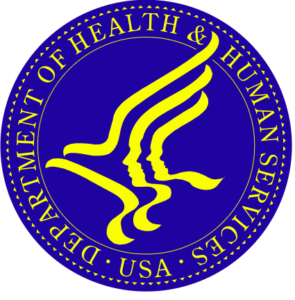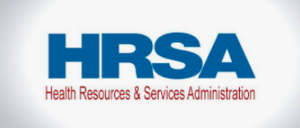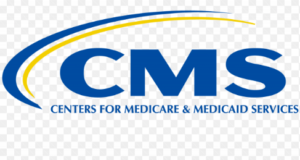- CMS: Medicare Program; Implementation of Prior Authorization for Select Services for the Wasteful and Inappropriate Services Reduction (WISeR) Model
- Public Inspection: CMS: Medicare Program: Implementation of Prior Authorization for Select Services for the Wasteful and Inappropriate Services Reduction Model
- CMS: Secretarial Comments on the CBE's (Battelle Memorial Institute) 2024 Activities: Report to Congress and the Secretary of the Department of Health and Human Services
- HHS: Patient Protection and Affordable Care Act: Marketplace Integrity and Affordability
- HRSA Announces Action to Lower Out-of-Pocket Costs for Life-Saving Medications at Health Centers Nationwide
- Public Inspection: HHS: Patient Protection and Affordable Care Act: Marketplace Integrity and Affordability
- Increased Risk of Cyber Threats Against Healthcare and Public Health Sector
- Eight Hospitals Selected for First Cohort of Rural Hospital Stabilization Program
- Announcing the 2030 Census Disclosure Avoidance Research Program
- CMS: Medicare Program; Hospital Inpatient Prospective Payment Systems for Acute Care Hospitals and the Long-Term Care Hospital Prospective Payment System and Policy Changes and Fiscal Year 2026 Rates; Requirements for Quality Programs; and Other Policy Changes; Correction
- CMS: Medicare Program; Hospital Inpatient Prospective Payment Systems for Acute Care Hospitals and the Long-Term Care Hospital Prospective Payment System and Policy Changes and Fiscal Year 2026 Rates; Requirements for Quality Programs; and Other Policy Changes; Correction
- CMS: Medicare and Medicaid Programs; Contract Year 2026 Policy and Technical Changes to the Medicare Advantage Program, Medicare Prescription Drug Benefit Program, Medicare Cost Plan Program, and Programs of All-Inclusive Care for the Elderly; Correction
- CMS: Medicare and Medicaid Programs; Contract Year 2026 Policy and Technical Changes to the Medicare Advantage Program, Medicare Prescription Drug Benefit Program, Medicare Cost Plan Program, and Programs of All-Inclusive Care for the Elderly; Correction
- CMS: Medicare Program; Prospective Payment System and Consolidated Billing for Skilled Nursing Facilities; Updates to the Quality Reporting Program for Federal Fiscal Year 2026
- CMS: Medicare Program; FY 2026 Hospice Wage Index and Payment Rate Update and Hospice Quality Reporting Program Requirements
Oral Health Resources for Older Adults Available

PCOH has added two new resources on oral health care for older adults to their Request Materials page. “Oral Health Care Tips for Older Adults” is a resource with tips for oral health care for older adults including the importance of regular dental care and dental access. “Oral Care for Long-Term Care Residents” is a tri-fold brochure with tips providers need to know for treating adults in long-term care facilities. Topics include dry mouth, denture care, and gum disease. These resources, and many others, are available to download or ship for free from the Request Materials page.
FDA Approves First Colorectal Cancer Blood Test
The FDA approved the Guardant Health, Inc. Shield, a test intended to screen for colorectal cancer (CRC) using blood collected in the Guardant Shield Blood Collection Kit. The test is used for CRC screening in individuals at average risk for the disease who are 45 years of age or older. Patients with positive test results should have a colonoscopy since the test is not a replacement for diagnostic colonoscopy or for surveillance colonoscopy in high-risk individuals. Shield has limited detection (55%-65%) of Stage I colorectal cancer and does not detect 87% of precancerous lesions.
HHS Shuffle Aims to Address Cyberthreats, AI
 The Biden administration is overhauling its health IT functions to address the proliferation of cyberattacks on the sector and the growth of data and artificial intelligence in medical settings. Why it matters: The goals include setting an AI policy and strategy for HHS and streamlining critical infrastructure protection within the Administration for Strategic Preparedness and Response, or ASPR, per a notice to be published in the Federal Register. Click here to learn more.
The Biden administration is overhauling its health IT functions to address the proliferation of cyberattacks on the sector and the growth of data and artificial intelligence in medical settings. Why it matters: The goals include setting an AI policy and strategy for HHS and streamlining critical infrastructure protection within the Administration for Strategic Preparedness and Response, or ASPR, per a notice to be published in the Federal Register. Click here to learn more.
CMS Celebrates 59 Years of Service
 This week, the Centers for Medicare & Medicaid Services (CMS) celebrated the 59th Anniversary of Medicare and Medicaid programs. Signed into law in 1965, Pres. Lyndon B. Johnson formally established the Medicare program, which provides health insurance coverage for those over 65, people with disabilities and those with end stage renal disease. Medicaid is a federal and state program that provides health coverage for low-income children, pregnant women, seniors, and individuals with disabilities. Medicaid is the single largest source of health coverage in the United States covering 82+ million Americans including over 2.9 million Pennsylvanians. Over the years additional services and benefits have been added to both programs including Medicaid Part D Prescription Drug Coverage and the Children’s Health Insurance Program.
This week, the Centers for Medicare & Medicaid Services (CMS) celebrated the 59th Anniversary of Medicare and Medicaid programs. Signed into law in 1965, Pres. Lyndon B. Johnson formally established the Medicare program, which provides health insurance coverage for those over 65, people with disabilities and those with end stage renal disease. Medicaid is a federal and state program that provides health coverage for low-income children, pregnant women, seniors, and individuals with disabilities. Medicaid is the single largest source of health coverage in the United States covering 82+ million Americans including over 2.9 million Pennsylvanians. Over the years additional services and benefits have been added to both programs including Medicaid Part D Prescription Drug Coverage and the Children’s Health Insurance Program.
Reminder: Emergency Resources

The Health Resources and Services Administration (HRSA) Emergency Preparedness, Response, and Recovery Resources for Health Centers webpage provides a comprehensive set of resources and links to their Emergency Information Kit. Resources include some on CMS’ emergency preparedness rule and a full list of Federal Tort Claims Act (FTCA) resources. In addition, the Department of Health and Human Services (HHS) recently introduced a new Heat and Health Index, which helps identify communities where people are most likely to feel the effects of heat on their health. Visit CDC’s website to access the index and other Centers for Disease Control tools. HHS’ Catalytic Program aims to connect safety net health care providers to Inflation Reduction Act funding for resilient and renewable infrastructure. Learn more on HHS’ website, which includes an entire set of webinars for health centers (scroll a little over halfway down the page).
Best Online Health and Safety Practices for Children and Youth Released
 The Online Health and Safety Task Force released a report with recommendations and best practices for safer social media and online platform use for youth. The recommendations underscore the Administration’s efforts to address the ongoing youth mental health crisis and support the President’s Unity Agenda for the nation. Read more and access the report via the press release.
The Online Health and Safety Task Force released a report with recommendations and best practices for safer social media and online platform use for youth. The recommendations underscore the Administration’s efforts to address the ongoing youth mental health crisis and support the President’s Unity Agenda for the nation. Read more and access the report via the press release.
Data Released to Promote Health Equity
A new report from Capital Link and the National Health Care for the Homeless Council aims to provide practical guidance for Health Care for the Homeless (HCH) health centers. It provides a thorough examination of financial and operational benchmark trends, empowering HCHs to leverage their data resources to effectively address health equity concerns. Visit Capital Link’s site to download.
American Cancer Society: Free Colorectal Cancer Screening Kits for Rural Patients
The American Cancer Society and Color Health are working together on a program to bring free at-home colorectal cancer screenings to patients in rural areas, who often face barriers to cancer screening. This program is free for both participating health centers and patients. Color Health will provide health centers with free Fecal Immunochemical Test (FIT) kits for patients (up to 50 per site). Support to help navigate through this screening process will also be provided by Color Health. Patients and health centers will be notified of results and instructions for next steps. Even clinics not in a rural area but that serve rural patients are eligible. Any interested health centers can reach out to kacie.jankoski@cancer.org for more info.
CMS Releases Guidance on Provider Directories, Services for Incarcerated Young People
 In July, Centers for Medicare and Medicaid Services (CMS) released two pieces of guidance on provisions in the Consolidated Appropriations Act (CAA) of 2023. The first piece of guidance addresses new requirements around accurate, regularly updated, and searchable provider directories in Medicaid and CHIP. Medicaid agencies and managed care organizations will need to make these changes by July 1, 2025. The second piece of guidance discusses Section 5121 of the CAA, which creates a new requirement to provide screening, diagnostic, and case management services to “eligible juveniles” who are post-adjudication in correctional facilities. Medicaid agencies will also have the option, under Section 5122 of the CAA, to provide full Medicaid and CHIP benefits to incarcerated young people who are pre-adjudication.
In July, Centers for Medicare and Medicaid Services (CMS) released two pieces of guidance on provisions in the Consolidated Appropriations Act (CAA) of 2023. The first piece of guidance addresses new requirements around accurate, regularly updated, and searchable provider directories in Medicaid and CHIP. Medicaid agencies and managed care organizations will need to make these changes by July 1, 2025. The second piece of guidance discusses Section 5121 of the CAA, which creates a new requirement to provide screening, diagnostic, and case management services to “eligible juveniles” who are post-adjudication in correctional facilities. Medicaid agencies will also have the option, under Section 5122 of the CAA, to provide full Medicaid and CHIP benefits to incarcerated young people who are pre-adjudication.
New Data Show Highest Number of Health Center Patients in Nearly 60 Year History of the Program

HRSA-Funded Health Centers Served 2.7 Million More Patients Over Past Four Years, Reaching High of More than 31 Million Patients
Today, to mark National Health Center Week, the Health Resources and Services Administration (HRSA) released new data showing over 31 million total patients served at HRSA-funded health centers in 2023—an increase of 2.7 million since 2020.
“Community health centers play a pivotal, and growing, role in America’s health care system. They are especially important in our effort to reduce health care disparities in underserved communities,” said HHS Secretary Xavier Becerra. “More than 31 million people across the country – in every U.S. state, territory, and the District of Columbia – depend on health centers, making them a vital resource. The Biden-Harris Administration wants all Americans to have access to high-quality primary health care services, regardless of a patient’s ability to pay, and community health centers help make that possible.”
“HRSA-funded community health centers make it possible for anyone in the community to access high-quality primary health care, regardless of income,” said HRSA Administrator Carole Johnson. “We are proud to serve millions more people and expand the community health workforce in rural and underserved areas all across the country.”
HRSA-funded health centers are required to treat all patients regardless of ability to pay, and in 2023 more than 90 percent of health center patients had incomes less than 200 percent of the 2023 Federal Poverty Guidelines. Health centers are now serving one in eight children across the country, more than 9.7 million patients in rural areas, over 6.4 million patients who live in or near public housing, and over 1.4 million people experiencing homelessness. Health centers have also expanded their preventive services, screening hundreds of thousands more people for cancer and infectious diseases and caring for patients with substance use disorders.
Health centers continue to be leaders in quality of care, increasing access and improving clinical quality across the board. Quality improvements since 2020 include:
- Administering more than 4 million HIV tests;
- Treating 585,000 prenatal care patients; and
- Improving clinical quality measures for chronic conditions, including hypertension control (+8%) and depression screening (+7%).
For more details on these and other Health Center Program outcomes see Four Years of Health Center Outcomes.
HRSA’s Health Center Program is a cornerstone of our nation’s health care system, especially for those who are uninsured; enrolled in Medicaid; living in rural, remote, or underserved areas; struggling to afford their health insurance co-pays; experiencing homelessness; residing in public housing; or otherwise having trouble finding a doctor or paying for the cost of care.
